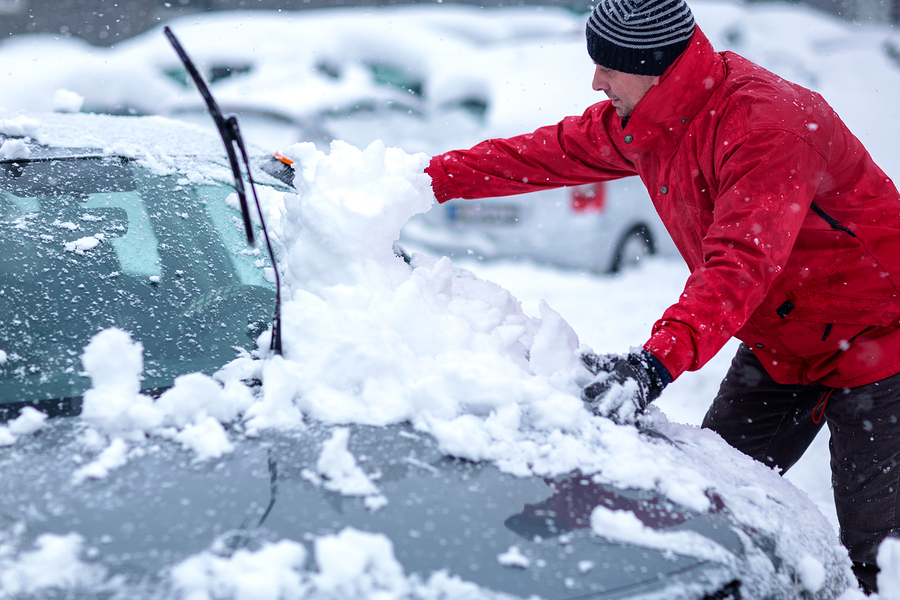How Winter Weather Affects Your Vehicle
- Details
 Winter is a season beloved by many, but it can take a huge toll on your vehicle. Whether it’s ice forming on your windshield or salt building up on the underside of your car, winter conditions can take a much higher toll on your vehicle than in other seasons. That’s why the team of professionals at Smiley’s Glass has put together this guide to help you understand where vehicle damage may be lurking this winter and how you can stop it.
Winter is a season beloved by many, but it can take a huge toll on your vehicle. Whether it’s ice forming on your windshield or salt building up on the underside of your car, winter conditions can take a much higher toll on your vehicle than in other seasons. That’s why the team of professionals at Smiley’s Glass has put together this guide to help you understand where vehicle damage may be lurking this winter and how you can stop it.
Windshield
One of the worst things that can happen to your vehicle in the winter season is damage to your windshield or window glass. When temperatures drop, the glass that makes up your windshield and windows contracts, causing increased tension on the surface on the glass. If something comes into contact with that tense glass like a pebble or an ice scraper, it’s very possible that the glass may crack or chip as a result.
Your vehicle’s windshield and windows are also susceptible to cracking or chipping when they are exposed to sudden temperature change. This is one of the leading causes of windshield damage in the winter. Many times, impatient drivers attempt to thaw their frozen windshields too quickly and cause damage in the process. That’s why it’s important to take your time when thawing your vehicle on a chilly morning. Be sure to turn the defrost on and never use a makeshift ice scraper. Learn more about taking care of your windshield in the winter here.
Fluids
Another hidden issue with your vehicle in the winter weather is fluids. In the winter, the weather cools, causing the fluids within your vehicle’s engine to cool and thicken. This includes brake, power steering, and transmission fluids as well as your car’s oil. This can affect the function of your vehicle, especially if your vehicle’s transmission fluid thickens. As this fluid thickens, it slows down and affects the speed at which your vehicle can transition from one gear to the next. You may notice that your vehicle’s transmission is not functioning as effectively in the winter months. This can put you at an increased risk for engine failure or a vehicle accident.
Battery
In temperatures lower than 30 degrees Fahrenheit, your vehicle’s battery is more likely to die unexpectedly. When the temperature is this low, the battery has to work extra hard in order to start your vehicle. If your battery is a few years old, it may be best to replace it before cold weather arrives. You can also have your existing battery tested in order to determine if you should buy a new one. You can avoid battery issues by parking your vehicle inside a garage when the weather is too cold outdoors. If you do not have access to a garage, having your battery checked will help you avoid any problems with your battery this winter.
Tire Pressure
The air pressure of your vehicle’s tires can also drastically change throughout the winter season. As a result of temperature changes, your tires will gradually lose air pressure. It’s estimated that a tire can lose around 1 pound per square inch (psi) for every 10 degrees Fahrenheit lost. It can be dangerous to drive on underinflated tires because they have an increased tendency to burst while in motion. You’re also more likely to experience uneven wear on your tires if they are underinflated, which shortens their lifetime and causes a need to purchase new ones sooner.
Salt
Whenever winter weather is on the horizon, salt is often applied to the roadways and sidewalks to help prevent icy conditions from forming. While this salt is very helpful in keeping roads safe and clear of snow or ice, it also covers your entire vehicle with a coating of salt that can be very damaging. When this salt coating gets on the underside of your vehicle, it can cause the metal components of your vehicle to corrode more quickly. It’s advised that you wash your vehicle frequently in the winter months and make sure to clean the underside of your vehicle at least once monthly in order to avoid damage from salt on the roadways.
Winter weather can take a serious toll on your vehicle, but that doesn’t have to ruin the entire season for you. With these tips in mind, you’ll be prepared for anything and everything that may affect your car during the winter season. If you have a cracked windshield and need windshield repair services, contact Smiley’s Glass by dialing (804) 320-7172.








